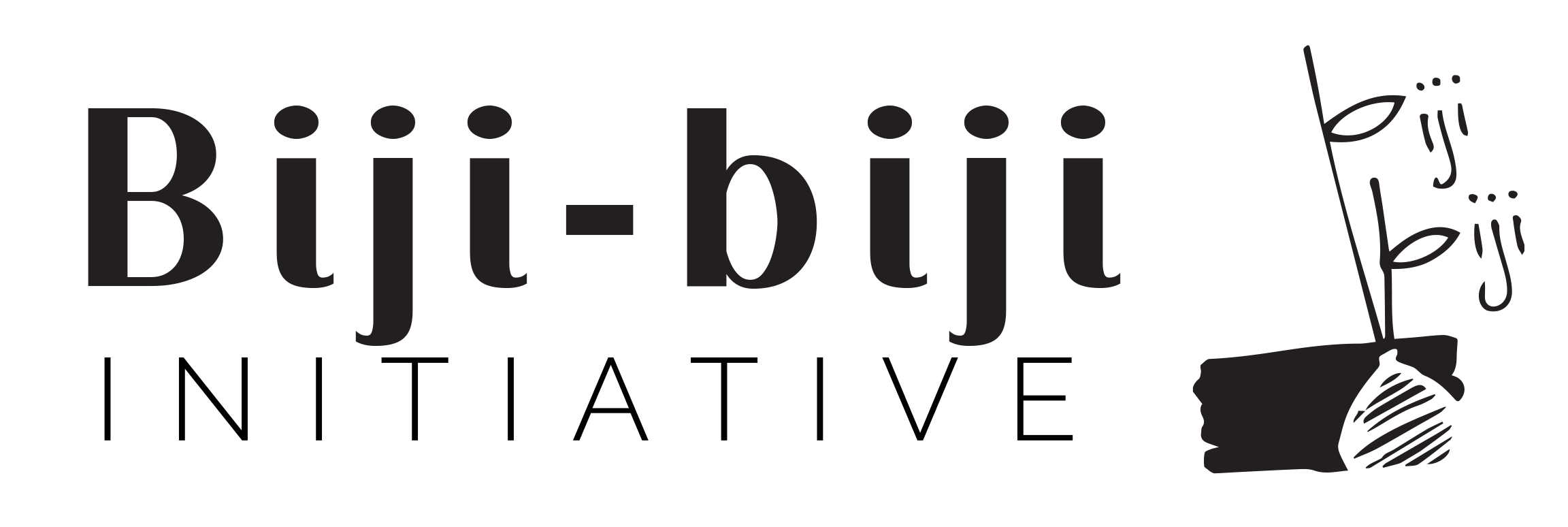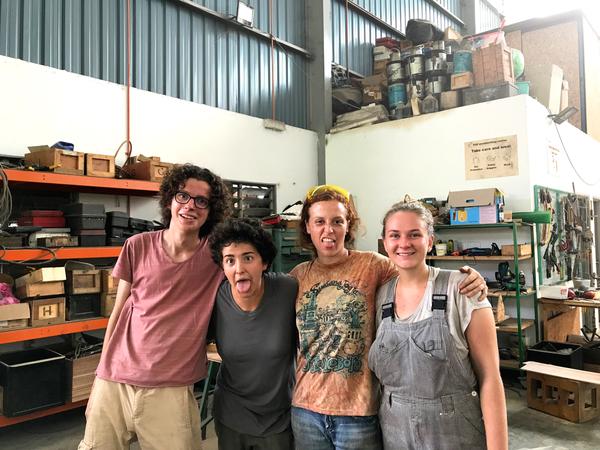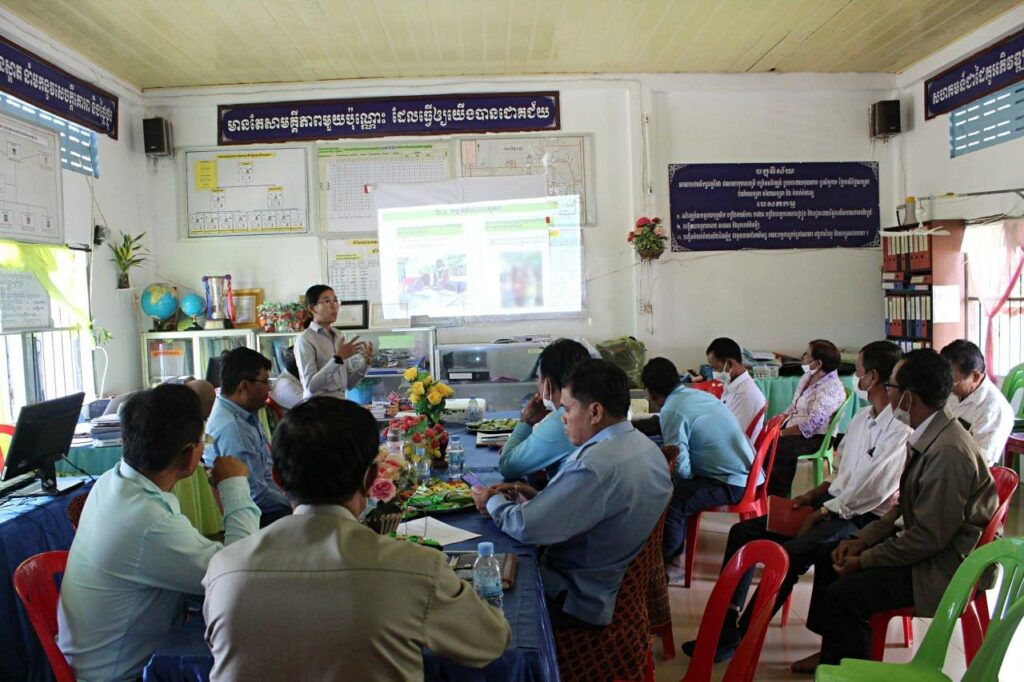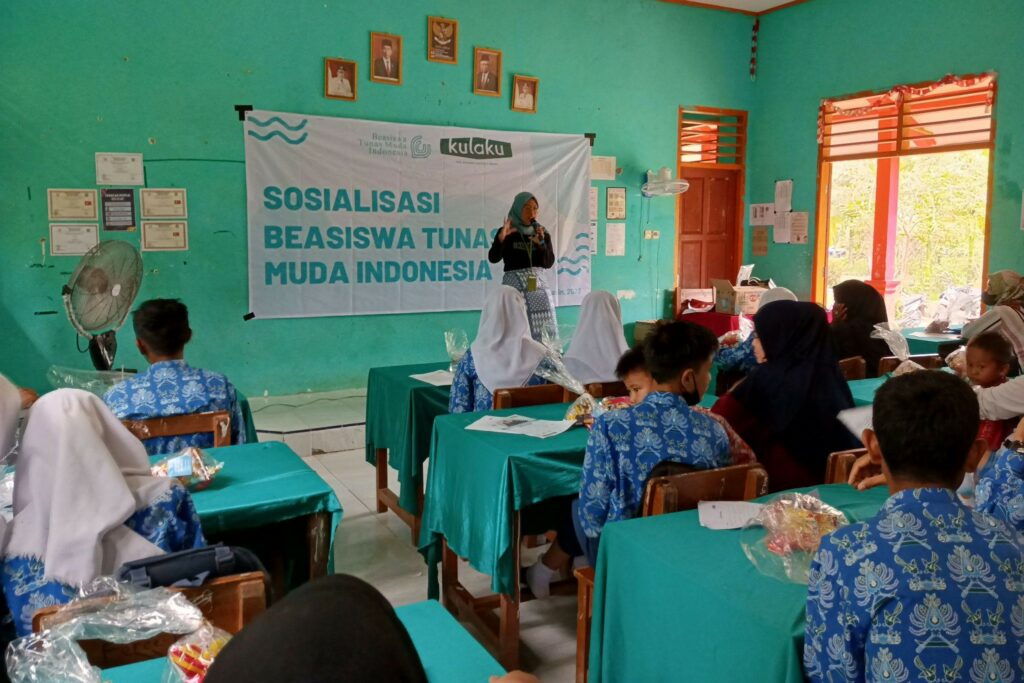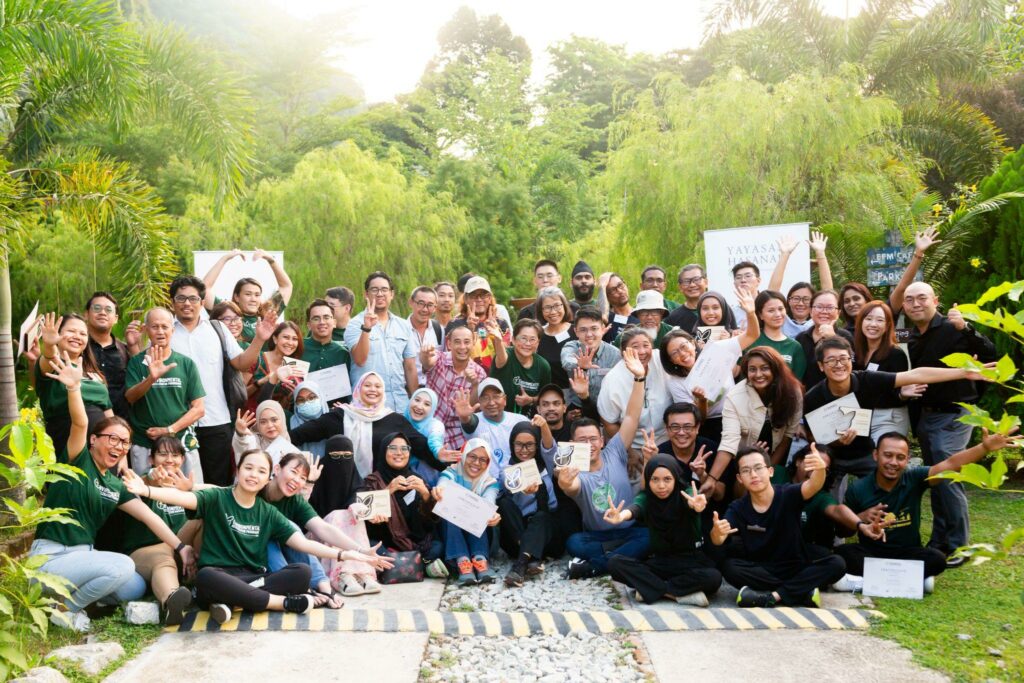He came from the land of ever-flowing chocolate and cheese, Sacha had left his home for an “exhilarating” journey through Europe. After 4 months, he continued his journey to Malaysia and found Biji-biji Initiative where he spent 2 months, learning, making and, of course, contributing to the general well-being of the environment, Biji-biji style.
Sacha shares what it is like to be a part of the Biji-Biji family and the wonderful memories he has of Biji-Biji.
S: My name is Sacha Schwartz and I’m from Zurich Switzerland. I’ve been travelling for the past 6 months and spent the last 2 months at Biji-biji. I studied programming and I like to read historical books, where the facts are complete nonsense. I like good music and good food, which is why I like Malaysia.
Z: Which parts of the world have you been to other than Malaysia?
S: I was travelling in Northern Europe and then I got a cheap ticket to Malaysia and thought, why not? Then I checked out what I can do in Malaysia and Biji-biji came up on the first page and so I think “that looks like a cool place”. That’s basically how I ended up here.
Z: After travelling for quite some time, how can you describe your journey in one word?
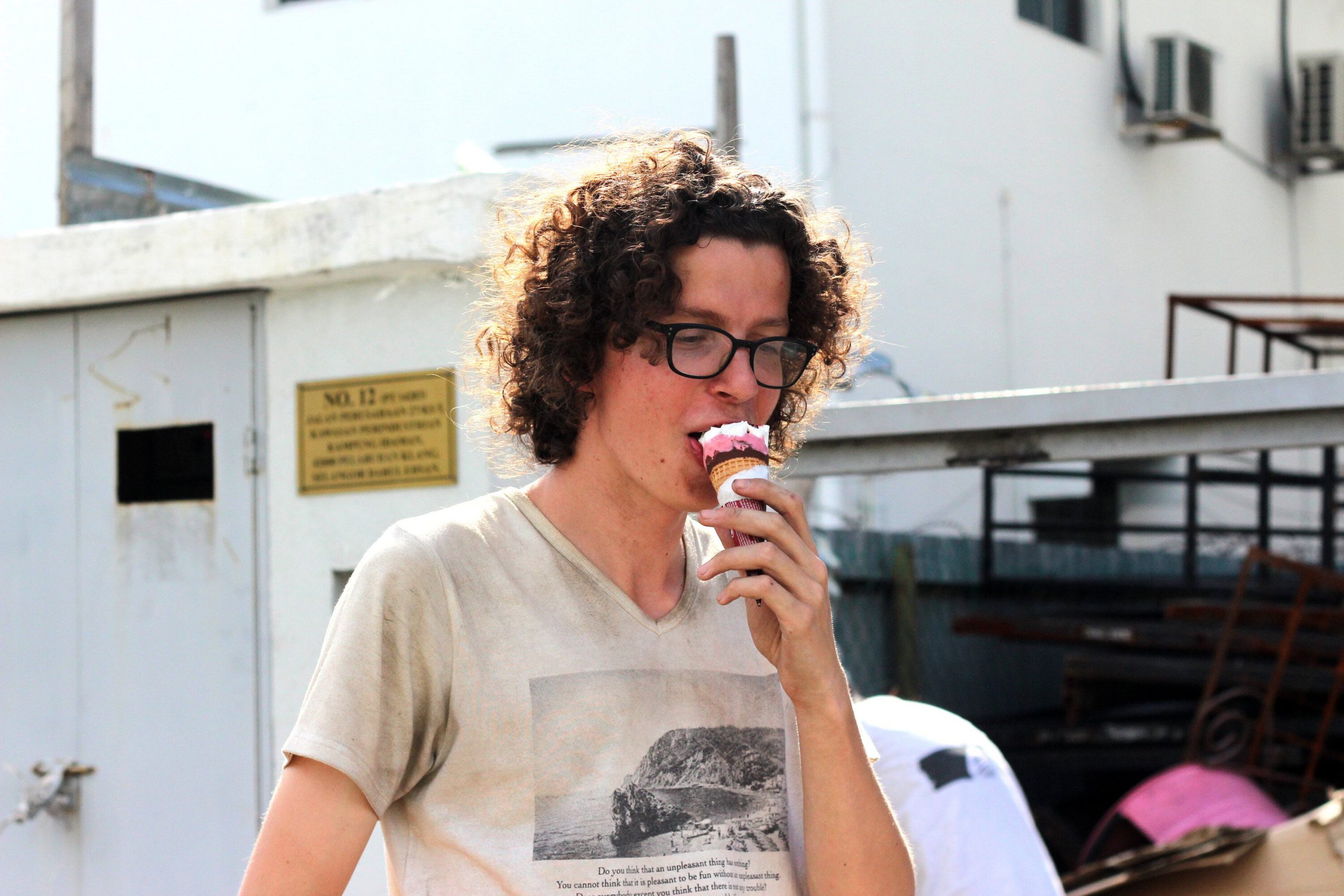
S: I don’t want it to sound cliché, but ‘life-changing’. Oh, that was two words. Hmm… ‘exhilarating’!
Z: Did you have any bad experiences while travelling?
S: Of course, when you have travelled for such a long time, your routine starts to change and you ask yourself “why am I doing this?” and just those days when you feeling down. I just sleep on it and tell myself it is going to be fine. But I also feel like the longer you are away, the less frequent it gets, and the more you get to understand want you want to do and a sense of direction by being “direction-less”, I guess.
Z: How do you feel about Klang?
S: I like it. I remember the day I arrived at Biji-biji. It was 12 o’clock at night and no one was around. I just stood in front of a building and I was not even sure if it was the right building. Suddenly a guy showed up on a motorcycle and asked me “what are you doing here? This is Klang! It is dangerous here for a foreigner, don’t go walking around at night”. He then took me on his motorcycle to a hostel in the area. When you go outside of Klang and people ask you, “where do you work?” and I tell them, Klang, people just go “wow, Klang?”
Z: Yeah, because Klang is pretty famous as the “ghetto” area with gangs.
S: Yeah, so you get a “street cred” when you tell people you are from Klang.
Z: Because I was born in Klang, I don’t really feel like Klang is dangerous. Like when people say India is dangerous, but when you get there you don’t really feel like it is a dangerous place. It’s just another country.
S: Yeah, and I have never seen any gangster act or any threatening stuff happening here in Klang. I mean there are dangerous places everywhere.
Z: Have u been outside Biji-biji after dark?
S: Yeah, you would be more afraid of the dogs than the people here!
Z: How far have you been outside of Biji-biji?
S: I’ve been to the Roti place near Shamuga and the gas station. I think Klang is famous for two things, gangsters and Bah Kut Teh and I didn’t see or try them out. When I arrived here I thought it was just a part of KL; it turned out to be another town in a different state!
Z: As you know, we Malaysians love our food! So what food have you tried that you really liked?
S: Wow a lot! But the top three I would say are – there’s too much good stuff – third place would be, there were these clams from Ipoh. It is like mussels, white and brown with a really nice sauce. Then there is this dish, with fruits, like Durian, Jackfruit, Rambutan, Mangosteen and brown fruit. It tasted of brown sugar with black seeds, soursop, yeah all that stuff. Then, of course, the Chilli Pan Mee, I loved it; that’s the number one! And all the buffets in the Mamak and Malay shops. Those are things that I will definitely miss. And then the Roti Canai, or the Thosai. One ringgit Roti Canai; that is really hard to beat!
Z: Is there any memorable project you worked on in Biji-biji?
S: Yeah, helping out with the projects, even going out for projects like “Jurassica” and stuff, making the football table, helping out with the arcade machine. I got to learn a lot of cool stuff like welding and metal bending. At Biji-biji, you learn something new while you work; it’s not just screwing a bunch of wood together. The arcade machine is really cool because it combines woodworking, electronics, programming.
Z: Did you do the programming?
S: No. I helped to debug the actual program and also helped with the fabrication.
Z: What is your favourite tool?
S: The welding machine! Because it is a hands-on thing and not something you have at home; it is such serious stuff. I even went to see how much it costs.
Z: How much is it?
S: Too much! Even a used one would be a few hundred bucks. Then you would need the gas and the wire.
Z: What do you plan to make if you have one?
S: I don’t know, just bend and put metals together hahaha.
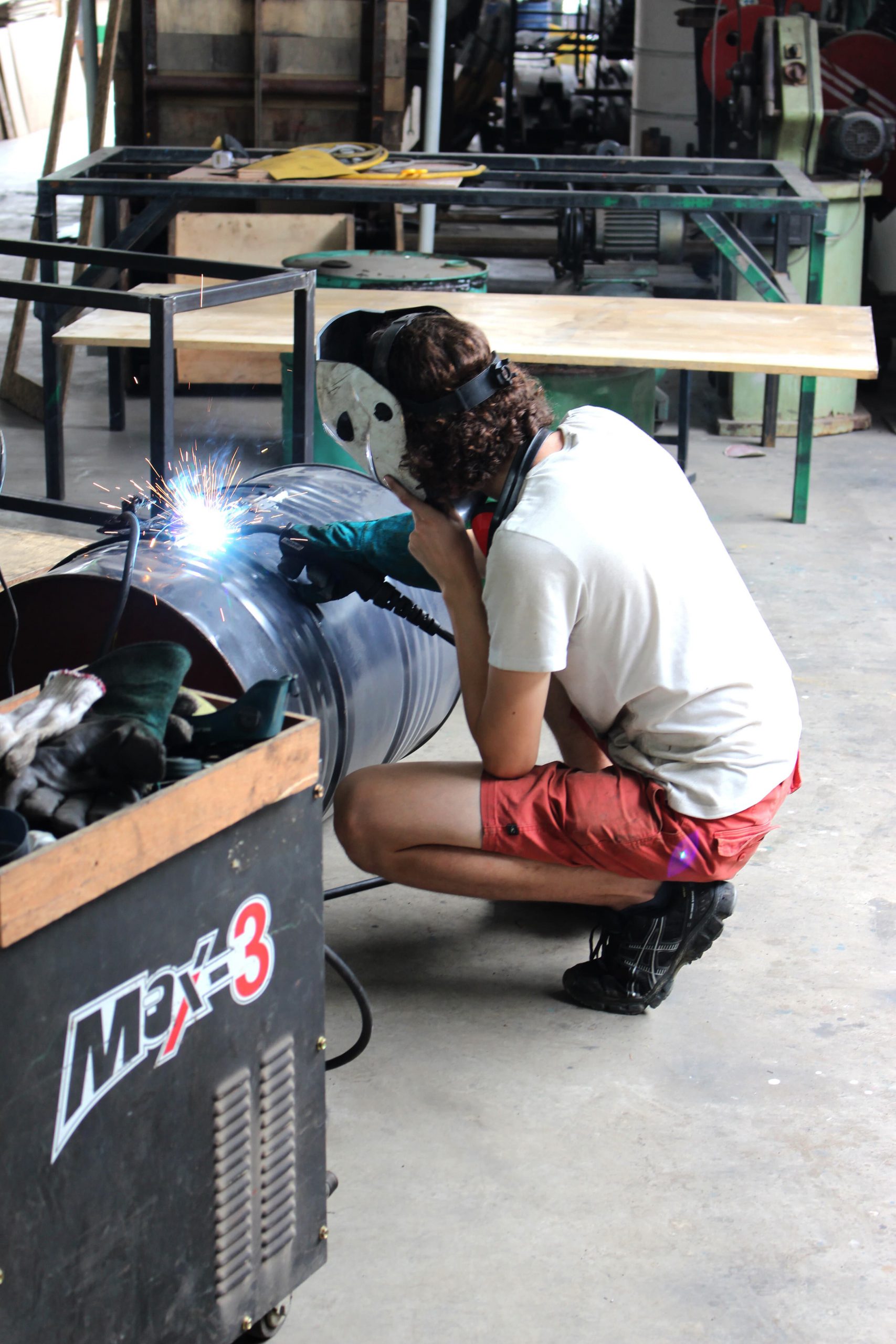
Z: What have you learned since you’ve been at Biji-bji apart from the skills?
S: A lot about Malaysia, how things work here and how Malaysia works. There are so many systems. People treat food differently here. It is much more important than in Europe. It is just food you have to eat and every meal has to contain 2 of these 4 main things which are, cheese, chocolate, meat and potatoes. It is not as varied as what you have here.
Z: Yeah, Malaysia has been colonised before and that is why we have a variety of food.
S: That is one thing interesting about Malaysia for foreigners. Most people do not know much about Malaysia and how stuff works here, the fact that these three cultures (Malay, Chinese and Indian) makeup Malaysia and Malaysians; how they work together and live together with different cultures, different religions, and still maintain their own legal systems, how they handle it. One of the most interesting things is trying to understand the way it all works.
Z: What challenges have you faced so far working in Biji-biji or when you are here in Malaysia?
S: It has been surprisingly smooth! Other than the first day. That’s the thing, the image of South-East Asia, when people talk about SEA they always mention things that are different from Europe so you get this stereotypical view of Asia but actually a lot of stuff is pretty similar. Ok, Malaysia is probably different from Vietnam and Thailand but, then again, it all worked out fine. I didn’t face any challenges, I kind of adapted to it.
Z: What is Biji-biji to you? How would you describe it to anyone who doesn’t know about us?
S: I feel like it is a Lego factory for grown-ups, where you can build anything if you have the patience and ideas. You have the opportunity to go crazy here. It doesn’t feel like this in the traditional business place, but here everyone just gets along together and I don’t really feel like working; it feels more like everyone is just hanging around, building stuff together. I didn’t even imagine that it is possible to do this at a business level. Everyone just goes like “oh, yeah maybe we should try this and see if it works or make something out of it” and not always like “ok this has to be done this way and discuss it in ten meetings and see if it is going to have an economy payout.” People here are just creative and I guess that creativity is what I like about Biji-biji.
Z: Alright that is about it, thank you so much!
